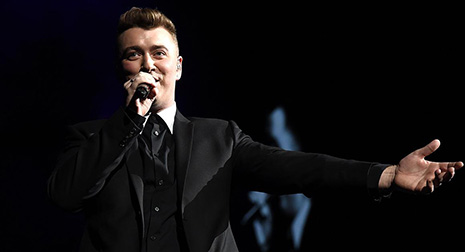A virtually unknown appendage of the Library of Congress – a panel of three unelected judges known as the Copyright Royalty Board – is preparing for the first time in five years to approve new royalty rates that Internet services like Pandora have to pay record labels. At the same time, performing rights organizations are heavily lobbying the Justice Department to update decades-old agreements they say stifle the income of songwriters and music publishers.
Rarely has so much been at stake for the music world in Washington, where federal copyright law has a much tighter hand on the industry’s business models than is commonly known. The results will dictate how recording artists, songwriters and streaming services make their money — and shape the digital music landscape for years to come.
Even amid the Grammys glitz, it’s a fact not lost on industry bigwigs, including the entertainment lawyers and lobbyists who attended a lunch event Friday at the Fairmont Miramar Hotel & Bungalows, a posh resort just off Santa Monica State Beach.
“People realize copyright law on the books now is out of date,” said Jay Cooper, a longtime intellectual property attorney who represents artists like Katy Perry, James Taylor and Sheryl Crow. “Artists realize they have to step forward. … It’s never easy but the atmosphere is better today than in a long time.”
In a sign of the issue’s growing momentum in Washington, the U.S. Copyright Office released a 250-page report Thursday on the need to update music licensing rules. The document — which suggests several reforms to the complex system — quickly became the main topic of conversation for the music industry lawyers who are gathering for the industry’s biggest weekend.
One key friction point: The battle pitting Pandora and other digital radio outfits against SoundExchange, the organization that collects royalty payments and doles them out to record labels. Pandora, whose fourth-quarter 2014 results missed analyst estimates, is pressing for lower royalty rates than those proposed by SoundExchange, which wants higher streaming compensation for recording artists and labels.
The fight has been brewing for the past year, and in May, it will turn into a live trial. The two sides will cross-examine each other before the Copyright Royalty Board over how much online radio stations should have to pay to play songs. The board is slated to issue a ruling by December.
Pandora, which reported 81.5 million active listeners at the end of last year, says the government should have a role in policing the often opaque music licensing system.
“Every stakeholder in the music ecosystem should be working towards a transparent and competitive music marketplace that allows artists, rights holders, users and consumers to thrive,” said company spokesman Dave Grimaldi. “If such a marketplace existed today, there would be little need for government involvement or oversight.”
But songwriters and music publishers don’t see things the same way. At the Justice Department and in Congress, they’re asking Washington to loosen its grip.
Groups like the American Society of Composers, Authors and Publishers (ASCAP) and Broadcast Music Inc. (BMI), which are in charge of ensuring songwriters get paid when their compositions are performed, say the current licensing system — governed by a pair of World War II-era consent decrees with the Justice Department — hamstrings their ability to extract a fair price from digital radio.
The groups last year convinced DOJ to undertake a review of the agreements and asked for changes that would give songwriters and music publishers more control over who can use their compositions and at what price. A preliminary response from Justice is expected this year.
“Why are songwriters the most heavily-regulated small businessmen in this country? It’s outrageous,” said ASCAP President Paul Williams, himself a Grammy-winning songwriter.
Looming in the background is a push from lawmakers to update varying parts of the music licensing system.
Reps. Jerry Nadler (D-N.Y.), Doug Collins (R-Ga.) and John Conyers (D-Mich.) are all likely to reintroduce reform bills this year. House Judiciary Committee Chairman Bob Goodlatte (R-Va.), whose panel launched a comprehensive copyright law review during the last session of Congress, has said the effort will continue.
As Washington digs deeper into the topic, music industry groups in D.C. are pleading with well-known artists and songwriters to get more involved in the debate and use their star power to draw attention to disparities in the system. Taylor Swift’s recent skirmish with Spotify over what that platform pays artists — a spat that generated national headlines — helped ignite new debate over the value of music.
“We are living in a musical landscape that’s changing so quickly, especially with technology,” said Kimberly Perry, lead singer of Grammy-nominated The Band Perry, who visited the Capitol for a concert and meetings with lawmakers last month. “To be completely honest, I’m interested in learning more about our business and asking questions that I don’t necessarily know the answers to.”
More about:









-1745485667.jpg&h=190&w=280&zc=1&q=100)






































